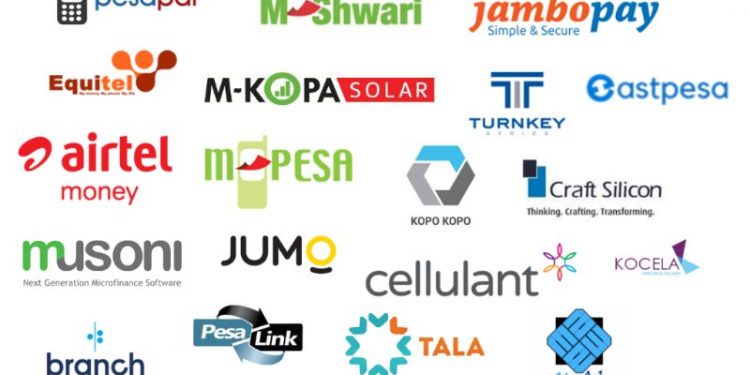An increased number of customers have moved to Fintech lenders after the capping of interest rates to four percentage points above the policy rate, in compliance with the Banking Act 2016 says a report by Asoko Insight.
“As banks increased their threshold for lending, a significant proportion of individuals and SMEs have been excluded from borrowing as their risk is out priced. Similarly, with many large banks suspending the issuance of unsecured personal loans, customers have sought out alternative creditors. Other principal drivers are the low barriers to access, convenience and speed of loan dispersal.”
The report adds that Fintech lenders Tala (formerly Mkopo Rahisi) and Branch have dispersed in excess of $244.7 million and $99.07 million respectively since their incorporation in 2011 and 2015.
Some banks have also moved to this space each wanting a piece of the pie which started off with CBA with M-shwari, KCB M-pesa, Equity with Eazzy Banking, Barclays with Timiza and Mortgage financier HF Group with HF Whizz.
A report by KPMG says that financial technology startups will be responsible for 72 per cent of financial innovations in the next 3 years.
Kenya Bureau of Statistics (KBS) data show that in 2016, 40% of all SME owners had commercial applications for their mobile phones, and that while only 29% of SMEs were registered pay bill/till users, 49.3% had mobile money and mPOS infrastructure in place.
The report adds that an increasing number of SMEs are adopting innovative financial technology solutions in order to tap into an increasingly mobile-savvy consumer base.
Kenya Most lucrative market for Fintech executives
Kenya is ranked ahead of Nigeria, Tanzania and South Africa as the most lucrative African Market for top Fintech executives with monthly salaries ranging from $ 12,000 to $ 20,000 at the higher end market according to a study by the Digital Frontiers Institute.
More than half of the respondents in the study attributed the high wages to intense competition for talent among Fintech companies, suggesting that the relevant talent pool is both limited and attracts a significant premium.
The study by DFI a non-profit research firm that provides training in Fintech shows that monthly compensation for executives is Ksh 2.27 million while that of senior management is Ksh 1.27 million monthly.




